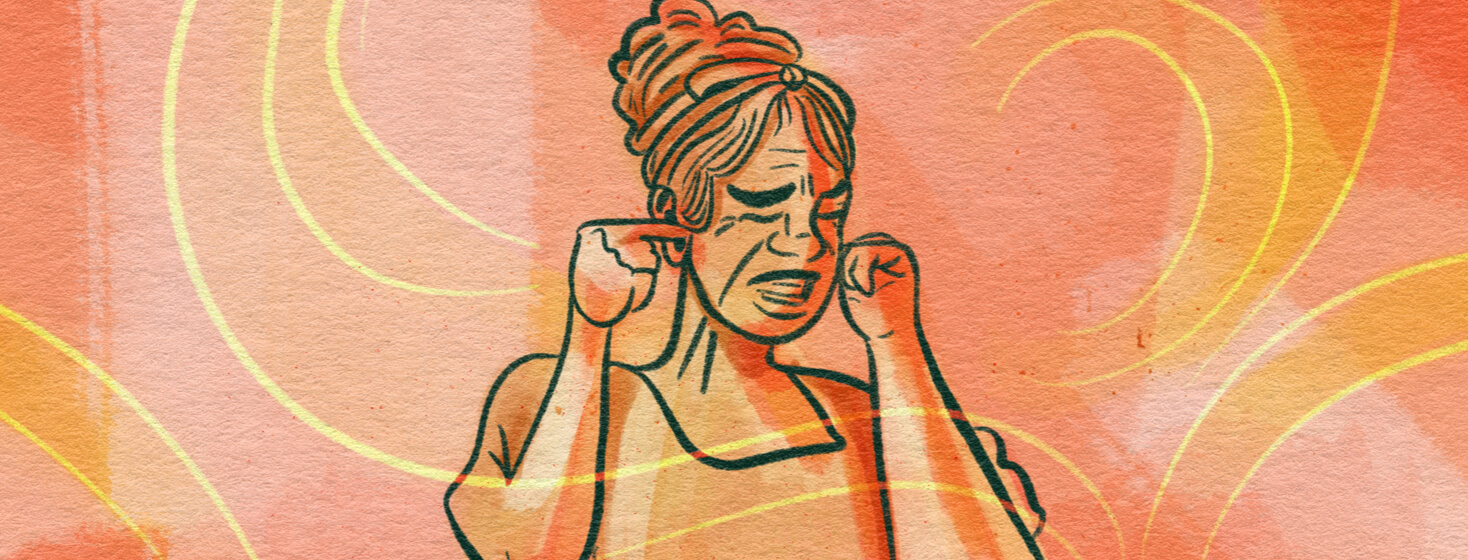When Your Migraine Is Telling You Something You Don't Want to Know
My migraines increased in frequency with the pandemic, my pandemic divorce, and my pandemic stressors. They also changed and have become less debilitating overall. I can power through one now. If I get an aura, I can banish it with medication and a cup of coffee. If I’m nauseated, I can breathe through it. I can drive without feeling unsafe, and I don’t get the big postdrome hangover anymore.
Losing my productivity to aphasia
The thing I started paying more attention to, though, is when these happen. If I start work at 9 in the morning and I’m on the computer the majority of the time, by lunchtime, I need a break because my conscious mind is threatening to mutiny. My brain will no longer compute. The migraine symptoms include aphasia, which just plain will not work for me in my writing profession. I get foggy and confused and have a hard time focusing. I’m not productive, so I take a break. Take a walk. Do some chores. Read a book.
My migraines are telling me to slow down
I don’t want to be less productive. I want to hustle. I need to work more. I can’t take long, leisurely lunches if I can help it.
My migraines don’t care that I want to be a productive cog in the capitalist machine. My migraines are clearly telling me something, something I am reluctant to hear and heed. My migraines want me to rest, go slow, notice my body, and be mindful and kind to it.
Lost in the fog during an interview
I applied for a full-time job as an editor recently and didn’t get it, partially because, when I went to take the edit test, I had an aura, brain fog, and COVID, something I mentioned in the interview but, oh well. Partially I didn’t get the job because it was a reach, and I’m sure there were other qualified applicants.
A declaration of disability
However, something I noticed on the application was the declaration of disability. I never thought of myself as disabled, coming out of a 90s childhood where we casually referred to people in terms that I do not condone out of the mouths of my children now. “Invisible disabilities” like mental illness for sure existed, but we didn’t think of them as disabilities. More often, we thought of them as personal failings.
A disabling disease
Now, on a job application and elsewhere, I qualify for disability because of my mental illness and migraines. Never has anyone ever accommodated me because of my migraines, and my mental illness is newly diagnosed. People were always nice to me when I’d get a migraine and miss a day of work or a social event, but never did anyone treat it like something chronic, more like a one-off, like getting the stomach flu. Stay home, come back when you’re better. The truth is, when you have migraines, you may not “get better.” You can get better at managing the symptoms and noticing triggers, but there’s no cure. It’s not a bug that’ll work its way through your system and be gone. It’s part of my identity, with me all the time.
Accommodating for my migraine
I’m a freelancer and my own boss. I need to make reasonable accommodations for my migraines. I need to limit my working hours and stagger my workday with lots of long breaks. I need to have health insurance and access to medical care. I have those things at a cost. This system is broken. Many people do not have access to or the ability to be a work-at-home freelancer with marketplace insurance and money to spend on copays and medications.
As we expand the definition of disability and bring transparency to the world of migraines, we need to talk about how to best take care of each other and, if nothing else, take care of ourselves.

Join the conversation